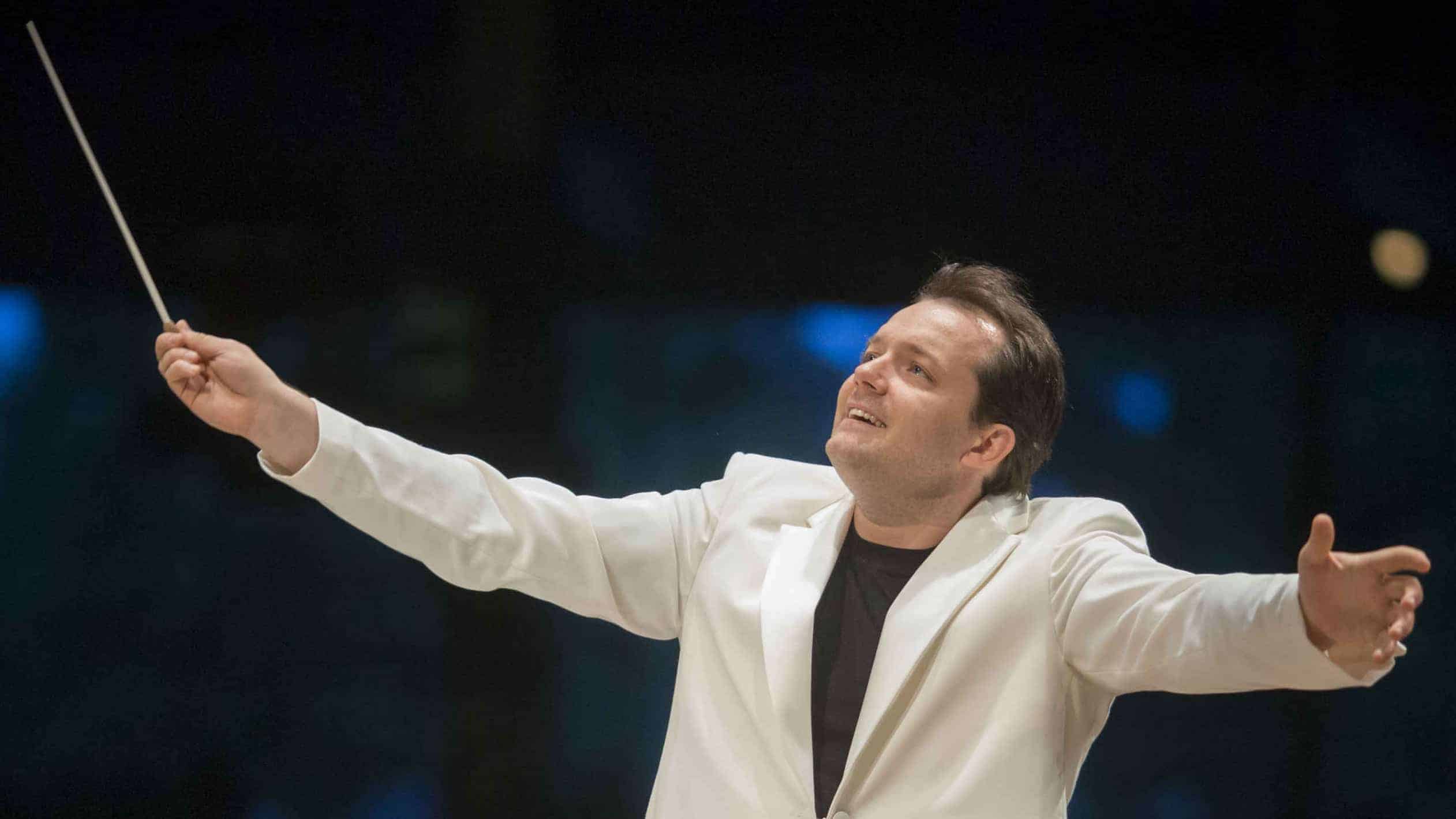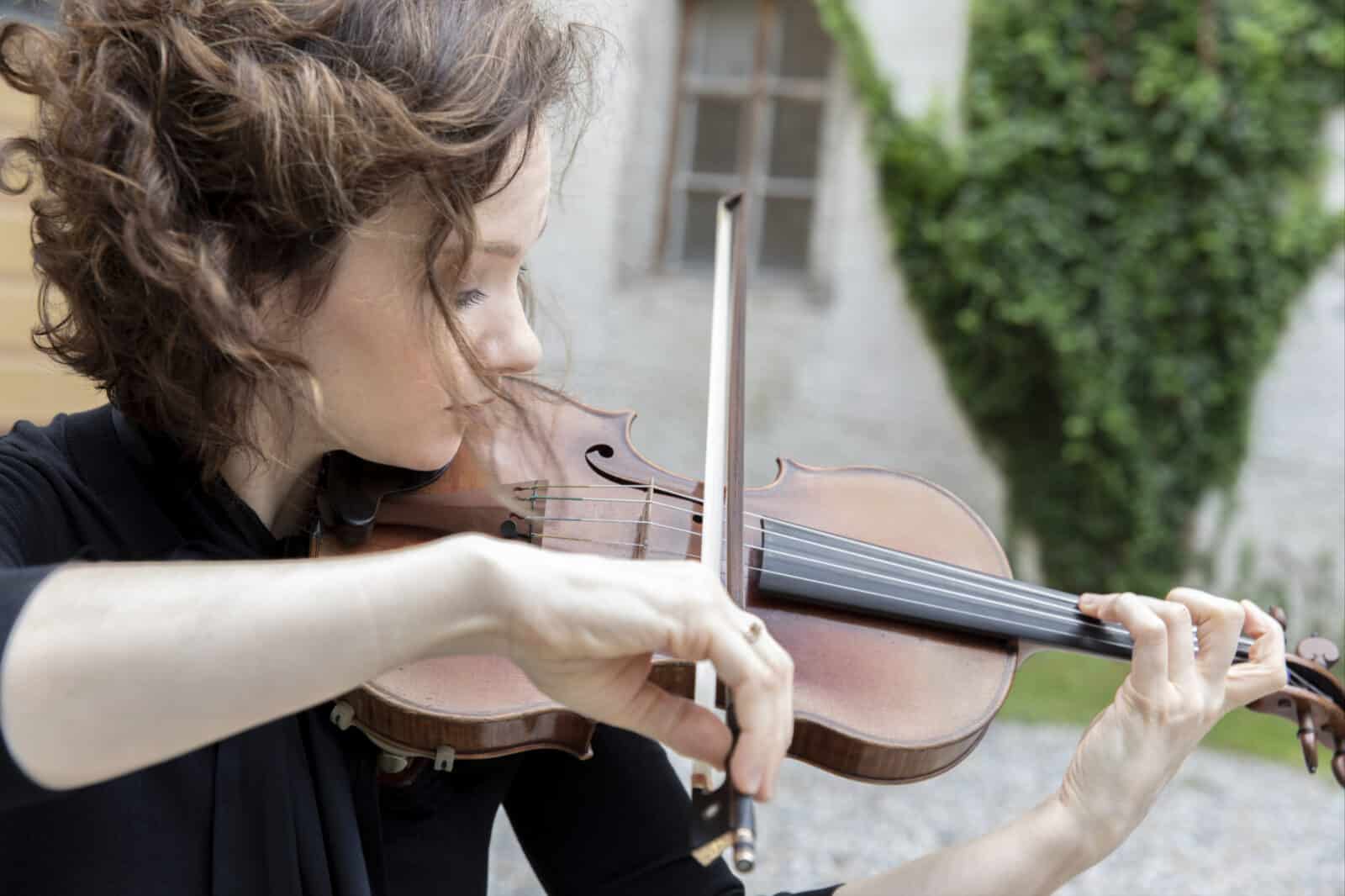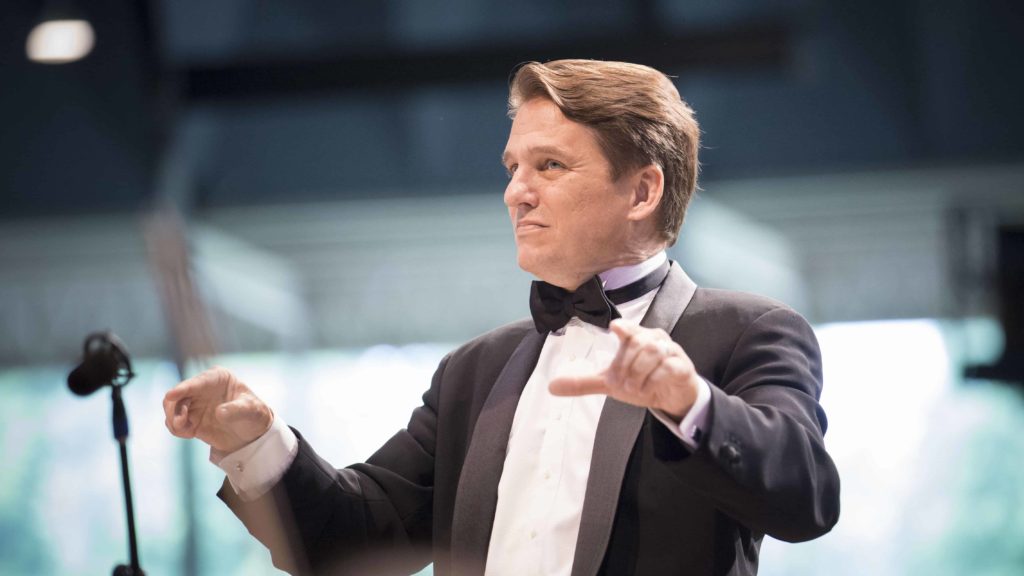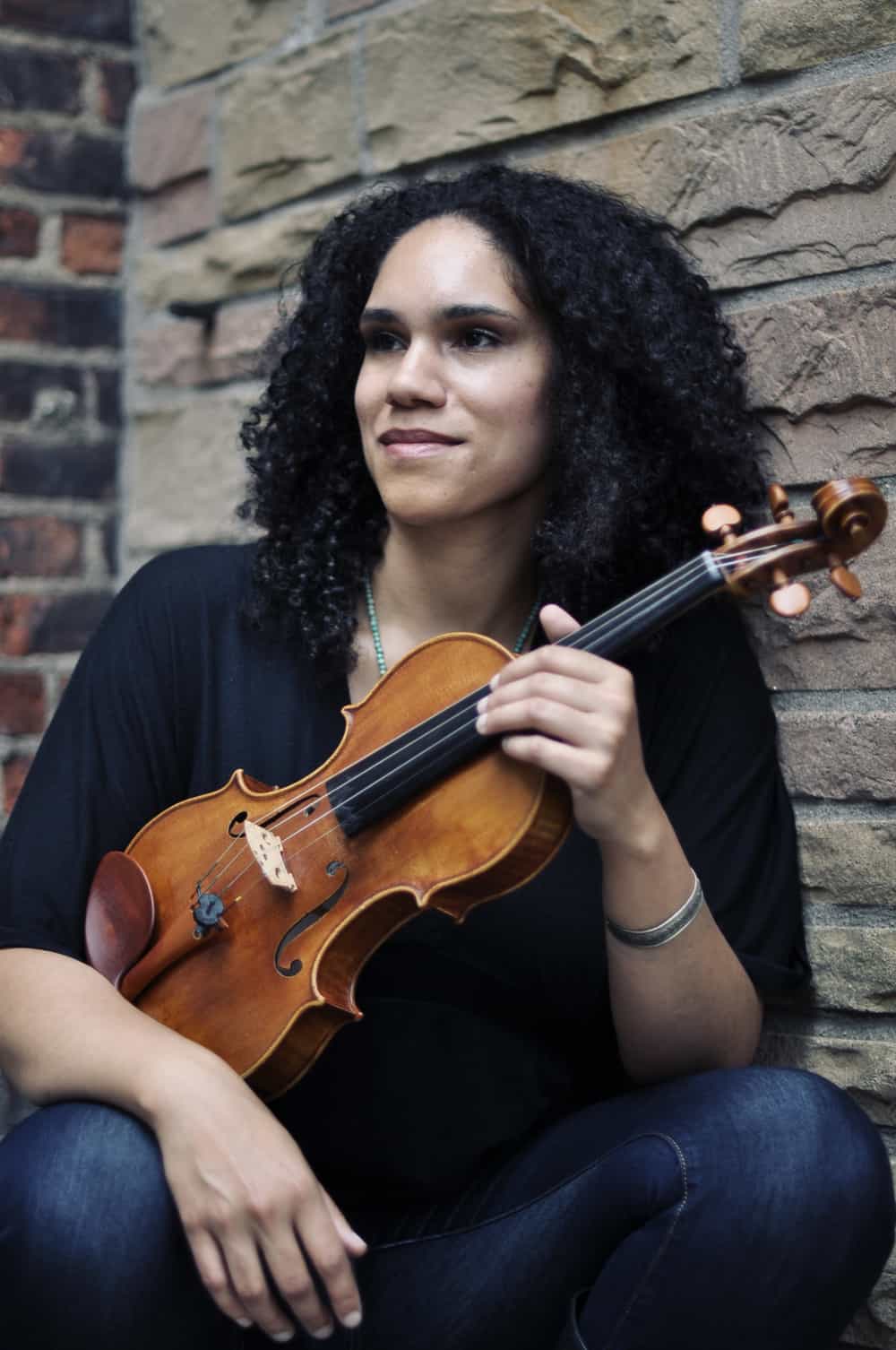Julia Bullock is singing, deep and assured, setting a vibration in the blood:
And the world will be on fire
on that day …
As an acclaimed classical soprano, Bullock has performed around the world. And on a summer night in the Berkshires, she will stand surrounded by the Boston Symphony Orchestra and a pattern of West African drumming.
She will sing a spiritual from Louisiana in an uneasy celebration over the beat, in the words of composer Jessie Montgomery, looking into a changed future.
Montgomery’s “Freedom Songs” reach to a deep and wide ecology of spirituals — to hundreds of years of oral tradition, to singers and musicians across oceans and continents.
On Tanglewood’s opening weekend, Bullock will perform Montgomery’s “Freedom Songs,” a BSO co-commission she and Montgomery have created together, she says, from the ground up.
Taking a moment from an international tour, she talked about the work, which BSO artistic director Andris Nelsons will conduct July 8 and 9 in a program that also includes Brahms’ Violin Concerto, with soloist Hilary Hahn, and the world premiere of Iman Habibi’s “Zhian,” a BSO commission.
She and Bullock began working together some seven years ago, Bullock said. Montgomery was creating a concert of her own music in New York City and came to Bullock to talk about setting Black spirituals she would love to sing. At their first meeting for the project, Bullock brought an anthology, “Slave Songs of the United States” — and Montgomery came in with the same book.
‘It’s not about being passive, about what is currently happening and the reality as it exists. There’s a real resistance element.’ — Julia Bullock
“So we decided, let’s go through these 136 songs,” Bullock recalled. “The anthology was released just after the Civil War, in 1867, and the musicologists traveled all over the United States into these newly freed communities, or post-Reconstruction communities.”
The writers kept an account of where they heard the music, she said, and the people who sang the songs, and how they performed — a sense of their thoughts and perspectives and living presences that Bullock finds compelling.
“We have the oral traditions of this music, so it would have lived on,” she said. “But to have a document there … in our Western world, documentation is important, because otherwise things are written on your behalf.”
She welcomed the chance to work with Montgomery on music that spans the classical traditions they both embrace as well as forms of Black American music that feel deeply rooted in her own past.
“One thing that has happened,” Bullock said, “if we look at some American tunes by composers like Aaron Copland, Samuel Barber -— they have orchestrated beautiful American folk songs, many of which have Black American roots, but it’s rare to hear Black music that has been orchestrated for and by Black musicians. So I’m thrilled that so many orchestras are interested in the work.”
Songs shaped by slavery – and freedom
Spirituals themselves grow from widespread musical traditions, Bullock said. Many cultures have come together within Black American music. From the African continent, people were forcibly brought here from many places and traditions.
“A Black culture has emerged from it,” she said. “But its roots have so many facets, and they reach globally.”
The roots run deep in the Americas, as the diaspora spread across continent. People were forced from their homes and communities, families divided. Often they spoke different languages.
In their new land, music became a voice for individual and community expression. People sang their lived experiences — faith, family, labor in the fields, the hard realities of living enslaved.
And throughout these songs, Bullock said she and Montgomery feel a current of revolution and protest, a sense of courage – and of deep, incalculable loss.

Pamela Z, Internationally prominent composer, performer and media artist, will perform at Tanglewood. Press photo courtesy of Boston Symphony Orchestra
People are holding each other through hard times. They are walking shoulder to shoulder with absolute determination to be free. They are holding a clear vision of a place with no whips cracking. The music vibrates with a recognition of pain and anger, and through them, kinship, love, senses awake in the world:
You will hear the trumpets sound,
to wake the nations underground,
looking to my God’s right hand,
when the stars begin to fall.
Spirituals have grown as an oral tradition, Bullock said, changing through time and space, as each new singer shapes them. She and Montgomery want to embody that past and present in the music.
Montgomery, an acclaimed classical violinist, has drawn deep expression from the sound.
“She uses all parts of the stringed instrument,” Bullock said, “and the variety of sound … is remarkable.”
‘She uses all parts of the stringed instrument,” Bullock said, “and the variety of sound … is remarkable.’ — Julia Bullock on Jessie Montgomery
Together they explore each new work, and the songs draw on influences ranging from Gregorian chant to jazz. Some songs strike a note of celebration.
“Her setting of ‘My Lord, what a morning,’ the opening song, it’s just one of the best pop tunes that you can imagine,” Bullock said, laughing, “so beautiful.”
And some call to action. “My Father, How Long” emerged from a jail in Georgetown, S.C., at the break of the Great Rebellion, Montgomery explains in her notes. Percussive sounds in the strings evoke the sounds of a chain gang.
We will not suffer here …
“That was one thing that really struck me,” Bullock said, “and is something that has definitely stayed with me over the years, as I’ve now taken on singing a lot of material that is from this anthology and traditional Black spirituals — the element of revolution is fully incorporated into the material.
“It’s not about being passive, about what is currently happening and the reality as it exists. There’s a real resistance element, and I think that’s something both Jessie and I wanted to ensure was explicit in this work.”
There’s no sun to burn you —
I want to go home.
The songs move from the beat of courage to the post-apocalyptic thunder in the words of the “Day of Judgment:”
And the moon will turn to blood on that day.
Tanglewood opening weekend
Andris Nelsons will conduct the Boston Symphony Orchestra at Tanglewood with acclaimed violinist Hilary Hahn, and Keith Lockhart will lead the Boston Pops in a concert performance of the awardwinning musical Ragtime, as Emmy awardwinning director and professor of theatre Angela M. Farr Schiller comes to speak on the musical’s themes of equity and freecom. And internationally acclaimed sound artist Pamela Z and tenor Nicholas Phan will perform.

Andris Nelsons conducts the Boston Symphony Orchestra at Tanglewood.

Acclaimed violinist Hilary Hahn bows her instrument in the sun. Press photo courtesy of the artist.



Pamela Z, Internationally prominent composer, performer and media artist, will perform at Tanglewood. Press photo courtesy of Boston Symphony Orchestra

Globally acclaimed tenor Nicholas Phan will perform in the opening weekend at Tanglewood. Press photo courtesy of the artist

Listeners gather around the trees on the Tanglewood lawn. Press photo courtesy of the Boston Symphony Orchestra.

Iranian-Canadian composer Iman Habibi brings Every Tree Speaks to Tanglewood. Press photo courtesy of the composer.
Inspired by Iranian protests
A call for change runs through the whole program of the BSO’s July 9 concert. Iman Habibi draws the name of his world premiere, “Zhian,” from a chant at protests in the past months, and in honor of a woman at the heart of them.
He left Iran 20 years ago this year, he explains in his notes on his new work, and he keeps in close touch with the country where he was born. There too, people are standing up for the freedom to live and think and work and love.
“A new wave of protests (what has resembled a revolution) began following the death of Mahsa (Zhina or Jina) Amini and several other young women,” Habibi writes. “Inspired by Mahsa’s Kurdish name, Zhina, Woman, Life, Freedom (Zhen, Zhian, Azadi) has become the main slogan of these protests, and the basic spoken rhythm of this slogan forms the main motivic element of this piece.”
The name Zhian translates to “life” in Kurdish, he says, and to “indignant” or “formidable” in Persian. In the months he spent writing this piece, Habibi said he was “surrounded by images and videos of Iranian protesters inside and outside of Iran, many of whom lost their loved ones (or) lost their own lives.”
“The music carries us through darkness and light,” he says, “but resolves in the end with a determination to continue striving toward a just, sustainable, and vibrant future.”

Internationally acclaimed vocalist Julia Bullock will perform at Tanglewood. Press photo courtesy of Boston Symphony Orchestra and Media Group Inc..
Giving room for improvisation
Bullock said she too found the exploration of her music healing. In a shared warmth and a reimagining of the past and the future, she and Montgomery examined the experiences of their families and their own roots.
Montgomery, she said, “felt this project was an opportunity for her to delve into a part of her living, … a part of her identity that she had not tapped into yet, and to approach it in an authentic way.
“And for me, … my father was Black, but he died when I was 9 years old, at that time when you’re starting to understand what identity is or trying to define that for yourself. … It’s like having to research a part of my history in order not only to feel informed but to feel genuinely re-incorporated as a person.
“I’m so grateful to have met somebody like Jessie, who was also on this journey in her own right, … and it’s through music that we were able to support each other in our healing processes.”
‘I’m so grateful to have met somebody like Jessie, who was also on this journey in her own right.’ — Julia Bullock
They have created these songs as new works, weaving in music from their own lives. As Montgomery draws upon classical technique, West African percussion and Western Christian musical structures, she has also held room for the songs to evolve every time new voices and hands perform.
Improvisation has long been essential for Black American music, Bullock said, “because the process of dehumanization and stripping people of their stories, of their humanity, their independence and even their individuality, was so disgustingly intentional, and over years of oppressive behavior and practices.
“And so to have a space where individuals and communities of people can let themselves be, let themselves loose and let their voices literally and figuratively be heard — that’s why improvisation found its way into Black American music.”
She feels the liberty to express as she feels, she said, throughout the piece, and the orchestra along with her.
“Every member of the orchestra has their given source material, and they can fly,” she said. “It’s so beautiful to be creating a work together on stage each time that I sing it.”
In the whole process of creating these works, Bullock said, she feels a beautiful, powerful and freeing energy and connection.
“It’s the first time I’ve collaborated with a composer from the ground up,” she said, “the first time I was with a woman composer, and the first time that I was working with another person of color, another Black person. There were so many parts of it that were illuminating, truthfully.
“The traditions of Western European composition, and even the act of getting most classical Western European music up and running, to embody it — there has been a history of real hierarchy and a culture of dominance associated with it. So in this work that is completely obliterated, from the creation of the work to the performance of it, and it just feels …”
She drew a breath, laughing, confident and expansive.
I know moonlight, I know starlight,
I’m walking through the starlight …
I want to go home …


